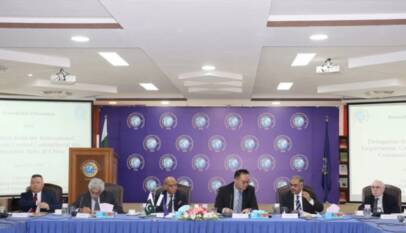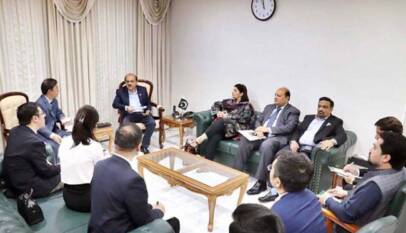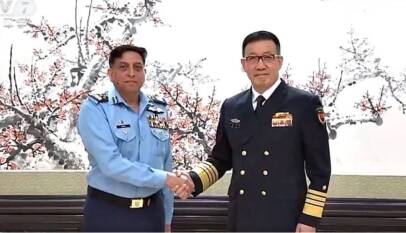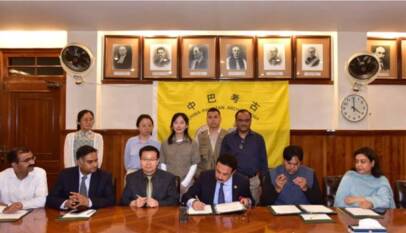Pakistan to tap into Chinese expertise to revitalize sports sector
Nasrullah Rana, director of Punjab Sports Board, in an interview with Xinhua, said that Pakistan has got an excellent opportunity to learn from Chinese expertise in the sports sector. He said that CPEC phase two can play a pivotal role in this regard. Both countries can work on making possible the exchanges of athletes and coaches. He also said that China is already helping Pakistan by offering sports-science scholarships to Pakistani students.
ISLAMABAD-The coronavirus pandemic has affected all aspects of Pakistani society, but sports have been particularly badly hit. Most sporting events have either been canceled or postponed since March when the government imposed nationwide restrictions to contain the disease.
Pakistan’s sports officials and athletes, however, are hopeful that the sector’s eventual recovery can be hastened with help from the China-Pakistan Economic Corridor (CPEC).
“In Pakistan, athletics, gymnastics, racket sports, ice and water sports are not given much attention and are considered unconventional sports because cricket is the only game which people know and love to play, due to which other sports are greatly neglected,” Nasrullah Rana, director of Punjab Sports Board, told Xinhua.
“Unfortunately there are a lack of champions in Pakistan because, despite the country boasting immensely talented sportspeople, they are not given the right direction, support and encouragement.”
Rana said that Pakistan is keen to tap into China’s athletic and infrastructural excellence, with assistance from Chinese coaches, fitness experts and sportspeople.
“During the pandemic, many people have realized how fitness is important for human health because the people who were physically active and had a good immune system defeated the disease in a much better and quicker way than those who were leading unhealthy lifestyles,” said Rana.
“I can foresee an interest for gymnastics and athletics among Pakistanis after the pandemic because during the last few months we have observed that followers of online fitness experts and athletes have greatly increased on social media.”
One of the ways in which China is already helping is by offering sports-science scholarships to Pakistani students.
As a resident of a remote part of the country’s eastern Punjab province, Rana Muhammad Ashraf has seen big changes in his life since beginning his scholarship at Beijing Sport University.
“I’m doing my PHD in sports science from Beijing Sport University, I did not have enough resources to support my dream of higher education in sports in Pakistan, and China gave me an opportunity to fulfill it.
“I was amazed when I joined the university because of the quality of education and vast sports labs they have in China, whereas in Pakistan we have neither of those things.”
The youngster added that, thanks to his experiences in China, he now has dozens of ideas to promote sports in his hometown when he returns.
Pakistani officials have also expressed their desire to tap the potential of the CPEC.
Earlier this year, Fehmida Mirza, president of the country’s sports board, said that Pakistan plans to invite Chinese sports experts to upgrade facilities before the start of the South Asian Games next year as a part of a “sports diplomacy” to bring both nations closer together.
“Through sports diplomacy, Pakistan and China can start exchange programs for athletes and coaches. These initiatives should be incorporated into CPEC Phase-II. These initiatives will further enhance people-to-people relations of both countries,” she said.
Pakistan has a lot of raw talent in the field of sports, but due to a lack of patronage much of it gets wasted and fails to earn the recognition it deserves-both nationally and globally. It’s hoped the CPEC can change that pattern.
Farhan Ayub, a self-taught sportsman who has broken 21 Guinness World Records in obscure categories such as helicopter spins and balloon bursting, says he is keen to perform in China to gain more exposure for his feats.
“I am from a very poor family. My father died when I was just 2 months old. I had no financial support. I supported myself, did ordinary jobs. Plus, I continued my studies and trained myself,” said Ayub, who added that during a recent trip on a China-funded Orange Line metro train, the thought struck him that sports could also benefit from the CPEC cooperation.
“I am of the view that the China-Pakistan friendship is already very strong and it could get stronger,” said Ayub.
“The CPEC is not just for the business community-I see it as an opportunity for sportspeople. Chinese athletes could come here and vice versa. So the CPEC could become a huge opportunity for sportspeople.”
Sports in Pakistan do not enjoy the same commercial clout as they do in China. However, experts believe that the two countries could conduct a “CPEC Games” to promote sports in Pakistan and help get the country’s athletes gain more recognition and financial independence.
PU and Chinese academy join hands for archaeological research under CPEC framework
LAHORE:Punjab University’s Department of Archaeology and Institute of Archaeology Ch…












